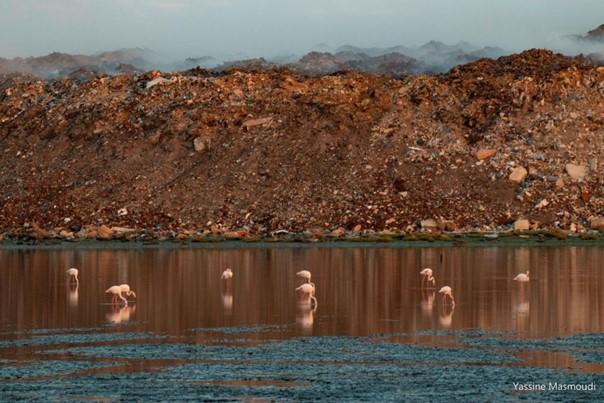With the “Save Thyna” project ENSERES supports in Sfax, Tunisia the birth of a new approach to environmental protection

Protect the integrity of the marine-coastal ecosystem and regain its beauty while making it a place of well-being and knowledge. This is the goal of "Save Thyna", the project conceived by the Sfax Al-Mazyana Association and funded by ENSERES. The salt pans of Thyna extend for over 50 hectares and host an important archaeological area. They are also a wetland protected by the Ramsar Convention thanks to the presence of at least 15 species of migratory birds which find here the ideal context for shelter, nourishment and nesting.
Despite the significant environmental value, the area has been in a state of neglect for years. The creation of the natural park did not bring with it any development strategy, and in a short time Thyna was transformed, like other districts of Sfax, into a place characterized by a high level of pollution. The ugliness then led in parallel to a "use" very far from the initial expectations. The salt pans of Thyna are today an ideal place to host small criminal activities.
The winning project of the ENSERES funded subgrant will be implemented in three phases. It will start with the decoration of a part of the park and the installation of games for children and tools for gymnastic activity, operations accompanied by various clean-up and tree planting campaigns. Subsequently, a video dedicated to the environmental and social importance of the Thyna park will be one of the main tools for the awareness campaign that will particularly interest young students, who will also be involved in marine litter management courses starting.
Yassine Masmoudi, nature photographer and project leader, describes the difficult situation that made necessary the birth of "Save Thyna": "The impact of the environmental crisis in Sfax and the accumulation of waste has transformed with the effects of pollution into a source of danger for thousands of resident and migratory birds, as well as to the lives of simple fishermen who work on the shores. Fish production has decreased significantly in recent years, only fish that feeds on faeces and of poor quality remain in this area. Many birds risk losing the ability to fly because of the industrial oils present in the water that get stuck in their feathers, or even being exposed to diseases caused by pollution. Birds also face dangers on land, as the sewage estuaries have caused the spread of wild boars and dogs, which feed on bird eggs and chicks”.
The Sfax Al-Mazyana association was born in 2012 and has made environmental protection the centre of its many activities. In ten years, it has worked to create and support in the city of Sfax a vision of the future made of rights, knowledge and ecology, in an attempt to rebuild a new relationship between the community and the environment. “Today we have to act in an emergency, but ‘Save Thyna’ is a model that we can apply to build a society capable of respecting the great environmental heritage that has been entrusted to it,” says Masmoudi.







